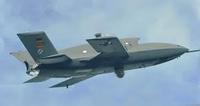-
Homeland security films informational but costly
Over the last four years the mayor’s office of Public Safety and Homeland Security in Houston, Texas, has spent $540,000 dollars to produce three short videos teaching people how to react in public safety emergencies; the price tag has some people upset
-
-
Court: Kentucky can continue to credit God for homeland security
The Kentucky Supreme Court has declined to hear a challenge to a state law that mandated that the commonwealth give credit to God for Kentucky’s homeland security; the Court let stand a 2011 Kentucky Court of Appeals ruling which found that a 2006 law, requiring the Kentucky Office of Homeland Security to publicize dependence on “Almighty God” in agency training and educational materials, did not violate the establishment clause in the Constitutional
-
-
Border Patrol kiosk detects liars trying to enter U.S.

The U.S. Customs and Border Protection (CBP) is using border crossing stations in Arizona to test new technology to detect liars as they attempt to enter the country; travelers are subjected to a 5-minute interview with the kiosk, while microphones monitor vocal pitch frequency and quality, an infrared camera monitors eye movement and pupil dilation, and a high definition camera monitors facial expression
-
-
New device dismantles pipe bombs safely, preserving forensic evidence
Thousands of pipe bombs are made each year, and thousands of pipe bomb threats are called into local police and FBI authorities across the country; many are false alarms, but those that are not can be deadly; dismantling a pipe bomb is tricky and serious business, and missteps during the dismantling process can produce catastrophic results
-
-
Drone use spreads to more areas and missions

As security challenges in the United State and around the globe change, many countries have one thing in common: unmanned drones will be a significant part of the future of security; advancements in technology are driving the use of UAVs into newareas
-
-
Veteran diplomat Brahimi replaces Anan as UN envoy to Syria
The UN Security Council last Thursday decided to end to UN observers mission to Syria, and replace the Kofi Annan, who resigned as UN envoy to Syria two weeks ago, with veteran Algerian diplomat Lakhdar Brahhimi; Annan’s efforts at mediation were equally pointless. The reason: both sides believed they would eventually prevail, and thus had no incentive to negotiate or compromise
-
-
The worse, the better: Assad’s troubles may hasten Hezbollah’s take-over of Lebanon
Lebanon is divided into two: the south and east of the country where Hezbollah is the sole ruler, and the rest of the country, which is under the nominal control of the central government – in which Hezbollah is the main actor; the weakening of the Assad regime in Syria has emboldened Hezbollah’s Lebanese opponents to renew their demands that Hezbollah disarm; with the Assad regime’s continuing problems, Hezbollah’s position will become only more difficult; in response, the organization may try to use its still-considerable military capabilities for a provocation against Israel, and attacks on its political opponents at home, or both, exploiting the ensuing turmoil to complete its take-over of Lebanon
-
-
Toilet Challenge, 1: Caltech’s solar-powered toilet wins Reinvent Toilet Challenge
The World Health Organization reports that 2.5 billion people around the globe are without access to sanitary toilets, which results in the spread of deadly diseases; every year, 1.5 million people, mostly those under the age of five, die from diarrhea; Caltech scientist awarded grant to develop solar-powered sanitation system
-
-
Concerns over terrorist groups gaining foothold in Latin America
At the moment, Islamic militant and terrorist groups do not seem to have a presence in Latin America, but concerns are growing that these groups could develop strategic links with drug organizations, posing a serious threat to security in the hemisphere
-
-
Unmanned civilian drones vulnerable to hijacking
Unmanned drones have become the eyes and ears of the military in recent years, giving them an advantage in intelligence gathering and in operations without risking soldiers’ lives; the drones’ versatility and low price have made them an attractive tool for domestic law enforcement and first response missions; there is one glitch, though: drones can be hijacked; if that happens, these swift, unmanned aircrafts could become weapons for terrorists
-
-
Lifelike, cost-effective robotic hand disables IEDs
Researchers at Sandia National Laboratories have developed a cost-effective robotic hand that can be used in disarming improvised explosive devices, or IEDs; the Sandia Hand addresses challenges which have prevented widespread adoption of other robotic hands, such as cost, durability, dexterity, and modularity
-
-
New earthquake assessment finds increased risk for Washington Dams
Central Washington state has always been considered low risk for earthquakes back when big hydropower dams went up on the Columbia River many decades ago; a recently completed seismic hazard assessment, however, shows that there is a much greater earthquake potential for the area than previously thought; now, dam owners have to figure out whether their dams can hold up to an earthquake; if retrofits are needed, they could cost hundreds of millions of dollars
-
-
U.S. wind power market riding a wave which is likely to crest in 2012
Facing looming policy uncertainty beyond 2012, the United States remained one of the fastest-growing wind power markets in the world in 2011 — second only to China; the expiration of key federal incentives could bring that wave crashing down in 2013, , despite a significant decline in the cost of wind energy
-
-
U.S. Army trains rats in explosives detection

Landmines kill between 15,000 and 20,000 people a year, and continue to kill adults and children decades after a conflict ends; the U.S. Department of Defense currently relies on dogs as the animal of choice for explosives detection, but Pentagon researchers want to see whether rats can be trained to do the job; rats are smaller so they can search smaller spaces than a dog can, and are easier to transport
-
-
Obama considering executive order for infrastructure protection
President Barack Obama is exploring whether to issue an executive order to protect the U.S. critical computer infrastructure from cyber attacks; White House sources say an executive order is being considered after a 2 August procedural vote in the Senate that all but doomed a scyberecurity bill endorsed by Obama as well as current and former national security officials from both Republican and Democratic administrations
-
More headlines
The long view
Factories First: Winning the Drone War Before It Starts
Wars are won by factories before they are won on the battlefield,Martin C. Feldmann writes, noting that the United States lacks the manufacturing depth for the coming drone age. Rectifying this situation “will take far more than procurement tweaks,” Feldmann writes. “It demands a national-level, wartime-scale industrial mobilization.”
No Nation Is an Island: The Dangers of Modern U.S. Isolationism
The resurgence of isolationist sentiment in American politics is understandable but misguided. While the desire to refocus on domestic renewal is justified, retreating from the world will not bring the security, prosperity, or sovereignty that its proponents promise. On the contrary, it invites instability, diminishes U.S. influence, and erodes the democratic order the U.S. helped forge.
Fragmented by Design: USAID’s Dismantling and the Future of American Foreign Aid
The Trump administration launched an aggressive restructuring of U.S. foreign aid, effectively dismantling the United States Agency for International Development (USAID). The humanitarian and geopolitical fallout of the demise of USAID includes shuttered clinics, destroyed food aid, and China’s growing influence in the global south. This new era of American soft power will determine how, and whether, the U.S. continues to lead in global development.
Water Wars: A Historic Agreement Between Mexico and US Is Ramping Up Border Tension
As climate change drives rising temperatures and changes in rainfall, Mexico and the US are in the middle of a conflict over water, putting an additional strain on their relationship. Partly due to constant droughts, Mexico has struggled to maintain its water deliveries for much of the last 25 years, deliveries to which it is obligated by a 1944 water-sharing agreement between the two countries.
How Disastrous Was the Trump-Putin Meeting?
In Alaska, Trump got played by Putin. Therefore, Steven Pifer writes, the European leaders and Zelensky have to “diplomatically offer suggestions to walk Trump back from a position that he does not appear to understand would be bad for Ukraine, bad for Europe, and bad for American interests. And they have to do so without setting off an explosion that could disrupt U.S.-Ukrainian and U.S.-European relations—all to the delight of Putin and the Kremlin.”
How Male Grievance Fuels Radicalization and Extremist Violence
Social extremism is evolving in reach and form. While traditional racial supremacy ideologies remain, contemporary movements are now often fueled by something more personal and emotionally resonant: male grievance.
